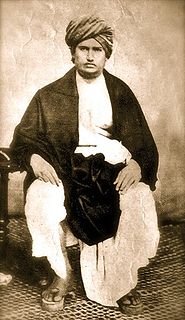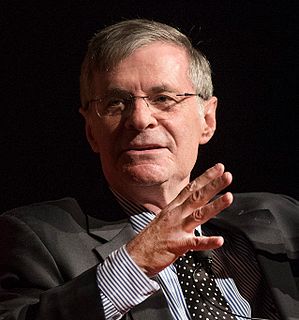A Quote by Michel de Montaigne
A tutor should not be continually thundering instruction into the ears of his pupil, as if he were pouring it through a funnel, but, after having put the lad, like a young horse, on a trot, before him, to observe his paces, and see what he is able to perform, should, according to the extent of his capacity, induce him to taste, to distinguish, and to find out things for himself; sometimes opening the way, at other times leaving it for him to open; and by abating or increasing his own pace, accommodate his precepts to the capacity of his pupil.
Quote Topics
Able
Accommodate
According
After
Before
Capacity
Continually
Distinguish
Ears
Extent
Find
Having
Him
Himself
His
Horse
Increasing
Induce
Instruction
Lad
Leaving
Like
Observe
Open
Opening
Other
Out
Own
Pace
Perform
Pouring
Pupil
Put
See
Should
Sometimes
Taste
Things
Through
Times
Tutor
Way
Were
Young
Related Quotes
Often nothing keeps the pupil on the move but his faith in his teacher, whose mastery is now beginning to dawn on him .... How far the pupil will go is not the concern of the teacher and master. Hardly has he shown him the right way when he must let him go on alone. There is only one thing more he can do to help him endure his loneliness: he turns him away from himself, from the Master, by exhorting him to go further than he himself has done, and to "climb on the shoulders of his teacher."
But as Nature is the best guide, teaching must be the development of natural inclinations, for which purpose the teacher must watch his pupil and listen to him, not continually bawl words into his ears as if pouring water into a funnel. Good teaching will come from a mind well made rather than well filled.
Some souls think that the Holy Spirit is very far away, far, far, up above. Actually he is, we might say, the divine Person who is most closely present to the creature. He accompanies him everywhere. He penetrates him with himself. He calls him, he protects him. He makes of him his living temple. He defends him. He helps him. He guards him from all his enemies. He is closer to him than his own soul. All the good a soul accomplishes, it carries out under his inspiration, in his light, by his grace and his help.
The first step to be taken by one who wishes to follow Christ is, according to Our Lord’s own words, that of renouncing himself - that is, his own senses, his own passions, his own will, his own judgement, and all the movements of nature, making to God a sacrifice of all these things, and of all their acts, which are surely sacrifices very acceptable to the Lord. And we must never grow weary of this; for if anyone having, so to speak, one foot already in Heaven, should abandon this exercise, when the time should come for him to put the other there, he would run much risk of being lost.
It makes him contemptible to be considered fickle, frivolous, effeminate, mean-spirited, irresolute, from all of which a prince should guard himself as from a rock; and he should endeavour to show in his actions greatness, courage, gravity, and fortitude; and in his private dealings with his subjects let him show that his judgments are irrevocable, and maintain himself in such reputation that no one can hope either to deceive him or to get round him.
The believer is sensible of his infirmities, for it is supposed that he is wrestling under them. He sees, he feels, that he is not man enough for his work; that his own hands are not sufficient for him, nor his own back for his burden; this is what drives him out of himself to the grace that is in Christ Jesus. And thus he lies open to the help of the Spirit, while proud nature in unbelievers is left helpless.
The motive of science was the extension of man, on all sides, into Nature, till his hands should touch the stars, his eyes see through the earth, his ears understand the language of beast and bird, and the sense of the wind; and, through his sympathy, heaven and earth should talk with him. But that is not our science.
For here we are so blind and foolish that we never seek God until he, of his goodness, shows himself to us. It is when we do see something of him by his grace that we are stirred by that same grace to seek him, and with earnest longing to see still more of his blessedness. So I saw him and sought him; I had him and wanted him. It seems to me that this is and should be an experience common to us all.
A Christian should put away all defense and make no attempt to excuse himself either in his own eyes or before the Lord. Whoever defends himself will have himself for his defense, and he will have no other. But let him come defenseless before the Lord and he will have for his defender no less than God Himself.
He loved me. He'd loved me as long as he he'd known me! I hadn't loved him as long perhaps, but now I loved him equally well, or better. I loved his laugh, his handwriting, his steady gaze, his honorableness, his freckles, his appreciation of my jokes, his hands, his determination that I should know the worst of him. And, most of all, shameful though it might be, I loved his love for me.







































